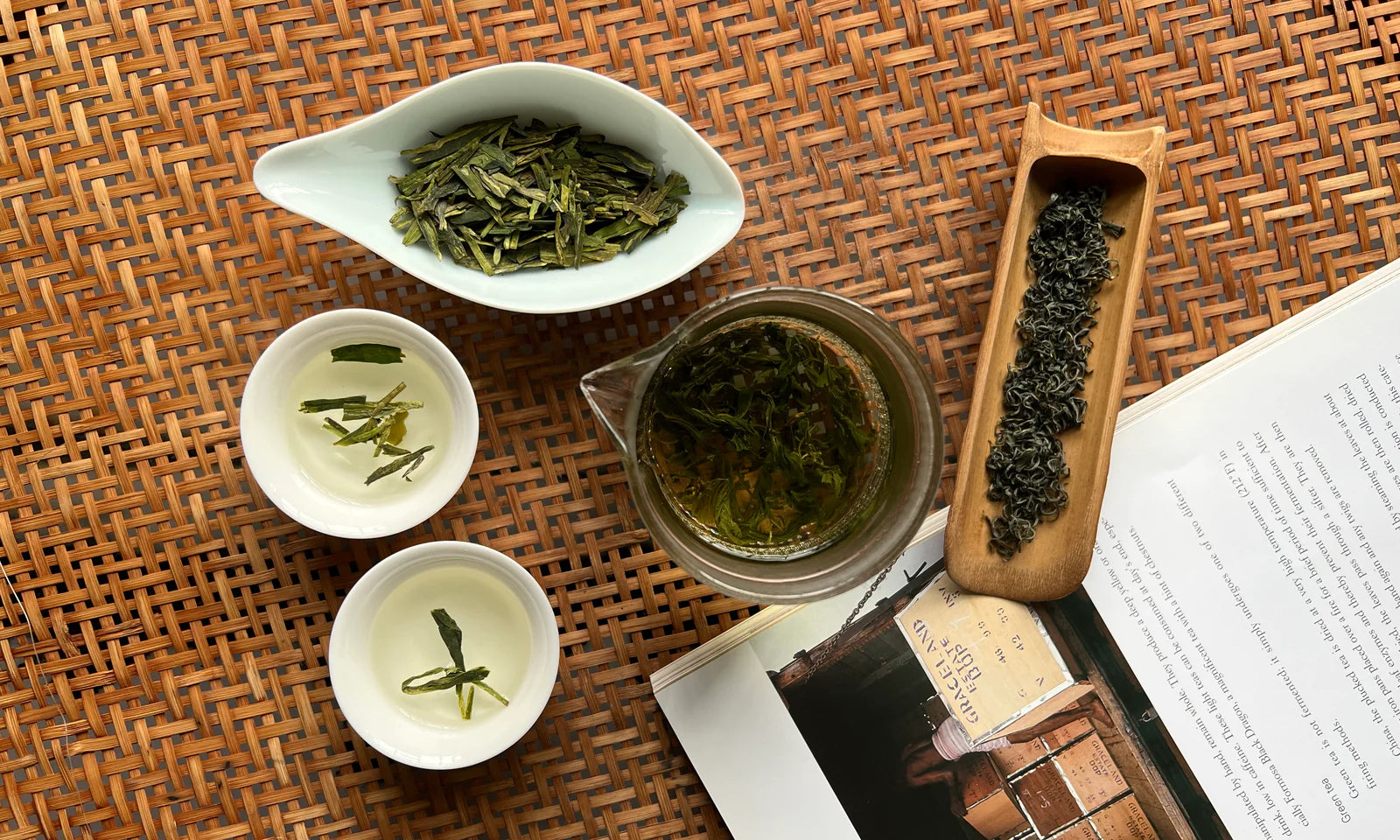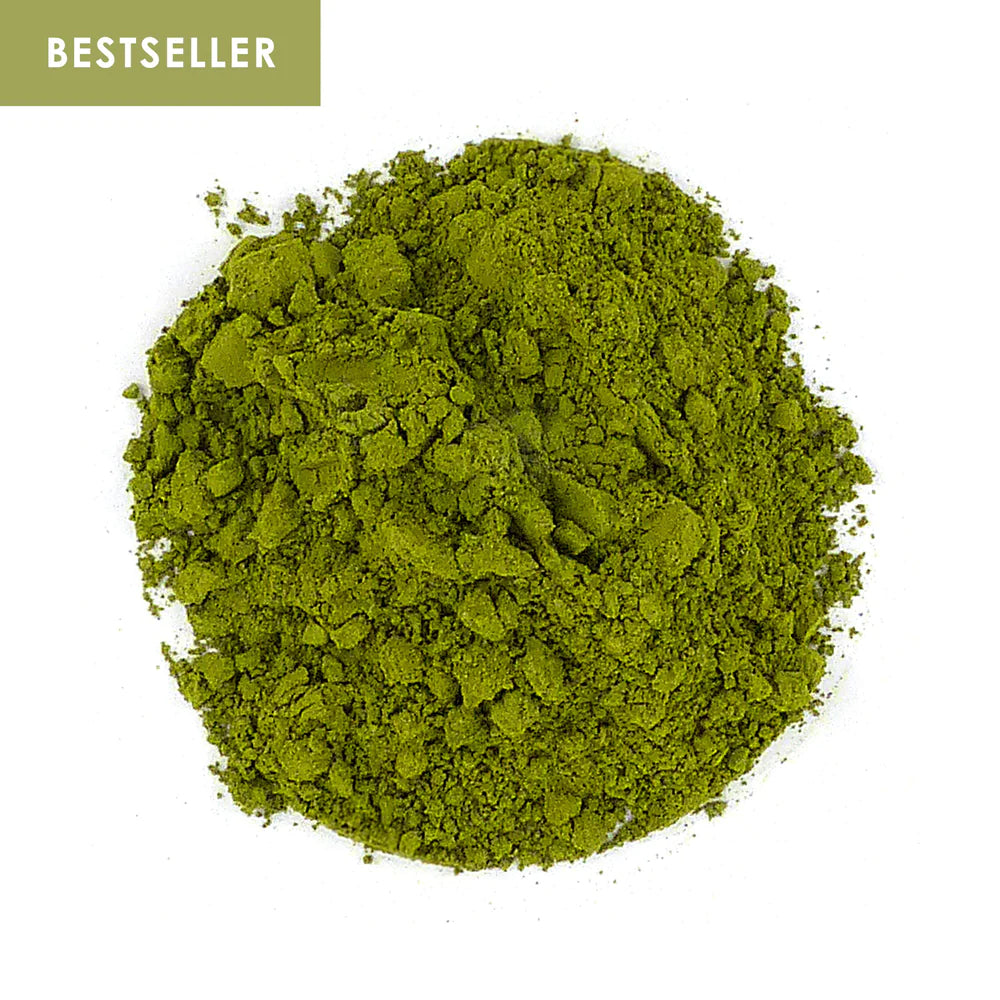Benefits of Tea
Strongest of All Antioxidants Found In Green Tea
In September 1997, a study by Dr. Lester Mitscher, professor of medicinal chemistry at the University of Kansas, concluded that green tea contains the strongest of any known form of antioxidants.
The study found that a cathechin in green tea, epigallocathechin gallate (EGCG), was more than 100 times as effective at neutralizing free radicals as vitamin C, and 25 times more powerful than vitamin E. Both are well known antioxidants. EGCG also topped other antioxidants, such as BHA, BHT and Resveratol. Antioxidants are thought to prevent cellular damage that leads to certain diseases - especially cancer.
Mitscher indicated that green tea contained, by far, the highest concentrations of active EGCG. He also stated that the daily consumption of green tea needed for antioxidant effect has not been established, but pointed to previous studies in China and Japan, where people customarily drink four (or more) cups per day. It has not been determined whether one cup per day is sufficient.
Drinking Green Tea May Aid In Weight Loss
Two studies were researched to propose that drinking green tea might aid in weight loss. The first study compared the metabolic effect of green tea, in extract, to that of a placebo.
The second study, researched by the University of Geneva, investigated the outcome of the combination of caffeine and a compound called epigallocatechin (EGCG), which is a catechin, found in green tea.
In the first study, researchers found that green tea drinkers burned an additional 70 calories a day. It is believed that the difference is caused by metabolism enhancing antioxidants, also known as catechins.
These metabolism-enhancing catechins are found in green tea. In the second study, researchers discovered that the combination of caffeine and epigallocatechin (EGCG) could enhance metabolic rate by 4%.
Green Tea May Prevent Sun-Induced Damage
In a case study researched at Case Western Reserve University in Cleveland, OH, it was found that green tea extracts are also beneficial if they are applied to the skin. Today, an escalating amount of skin-care products are beginning to contain green tea extracts.
To obtain this benefit, at least four cups of green tea need to be drank a day. Weaker iced-tea is not effective in receiving this benefit.
Tea May Strengthen Bones
In a study, executed by researchers from National Cheng Kung University Hospital in Tainan, Taiwan, it had been suggested that drinking tea might strengthen bones. Tea contains fluoride and flavanoids, both of which may enhance bone strength.
This study was based on 1037 men and women, 30 and older. who were questioned about tea consumption habits and had bone-mineral density tests.
It was found that the benefits were most noticeable in people who drank at least two cups of tea a day for at least six years. The hightest overall bone-mineral density test was found in people who had consumed tea habitually for more than 10 years; their bone mineral density test was 6.2% higher than in non-habitual tea drinkers.
Habitual tea drinkers for 6-10 years had bone mineral density tests that were 2.3% higher than non-habitual tea drinkers. No significant differences between tea drinkers of 1-5 years and non-habitual tea drinkers were established.
Heart Attack Survival Rates & Consumption of Green Tea
Researchers at Beth Israel Deaconess Medical Center in Boston, MA performed a study to demonstrate that tea consumption, both black and green tea can extend years of life after a heart attack.
In this study, 1900 heart attack survival victims, including both men and women in their 60's, were asked tea consumption questions.
Among the 1900 individuals who had suffered heart attacks, it was found that heavy tea drinkers who drank 19 or more cups a week reduced their risks of dying over the next 3-4 years by 44% compared to that on non-tea drinkers.
Moderate drinkers who drank less than 14 cups a week reduced their risks by 28% compared to non-tea drinkers.
Drinking Green Tea May Reduce the Effects of Cigarette Smoking
In two different studies, one by scientists at the Academy of Preventive Medicine in Beijing, China and the other by James Klaunig at the Indiana University School of Medicine in Indianapolis, the effects of green tea on oxidative stress, brought on by the toxins of cigarette smoke, were investigated.
Oxidative stress, an imbalance in the pro-oxidant/antioxidant status of a cell, appears to cause or participate in the development of certain diseases-notably cancer.
Researchers found that when cigarette users drank an equivalent of six cups of green tea a day, their bodies suffered 40% to 50% less oxidative damage. This potentially lowers their risk of cancer, emphysema, heart disease and other illnesses. Oxidative damage was reduced to that of levels found in nonsmokers prior to drinking green tea.
However, it is important to note that those who drink green tea and continue to smoke are still raising their risk of experiencing oxidative damage. Non-smokers who were studied exhibited significant decreases in oxidative damage as well.

Green Tea May Prevent Oral Cancer
At a symposium in Washington DC, 1998, a team of Chinese scientists, Ning Li from the Institute of Nutrition and Food Hygiene, Zheng Sun from the Chinese Academy of Preventive Medicine and Junshi Chen from the Beijing Dental Hospital, revealed that drinking green tea improves pre-cancerous conditions of oral leukoplakia in patients and suggests it may have certain preventive effects in oral cancer.
The study involved 32 patients, 20 males and 12 females, 23-28 years of age with oral mucosa leukoplakia, a pre-cancerous lesion of oral cancer. During a six-month period, patients drank three cups of green tea a day and applied a mixture of green tea and glycerin directly to the lesion.
As a result, 38% of the patients experienced a reduction in the size of a single lesion or in the total size of multiple lesions by 30% or more. 59% saw no changes at all. At the same time, the frequency and rate of formation of cancerous cells decreased significantly.
Although the sample size and the time of treatment of this study are limited, the results provide encouraging and direct evidence on the preventive effects of green tea on human cancer.
Green Tea May Prevent Rheumatoid Arthritis
Medical researchers at Case Western Reserve University in Cleveland, published a study in April, 1999 reporting that drinking four or more cups of green tea a day may prevent rheumatoid arthritis and reduce the severity of it in those who are currently battling the disease.
The study was conducted on mice with collagen-induced arthritis, which is similar to that of rheumatoid arthritis in humans. The mice that received green tea were less likely to develop arthritis than the mice that received plain drinking water. However, the mice that receive green tea and yet still developed arthritis had less severe forms of arthritis.
It was concluded that the antioxidants present in green tea possess not only cancer-preventing properties, but also anti-inflammatory properties. Rheumatoid arthritis is an inflammatory disease that causes pain, swelling, stiffness, and loss of function in the joints. The antioxidants in green tea may prevent or reduce the severity of these symptoms.
Although further research is needed in this area, the study closely mimics the human disease of Rheumatoid arthritis and provides encouraging evidence on the preventive effects of green tea on Rheumatoid arthritis.
Green Tea As Cancer Preventive
Continuing research on the beneficial properties of green tea to human health has produced several new findings. Most notable is a study by Japanese scientists of the Saitama Cancer Research Institute relating the delay of cancer onset with the consumption of green tea.
The study shows that early stage breast cancer spreads less rapidly in women with a history of drinking five or more cups of green tea a day. As a result, there is a lower recurrence rate and a longer disease-free period.
With the evidence that green tea and EGCG, a catechin found only in green tea, are a natural and readily available inhibitor of TNF, a gene expression which promotes the growth in cancer cells and in their surrounding tissue, it is possible for researchers to extend this idea to other various human diseases.
Since EGCG has also been proven to kill cultured cancer cells without causing harm to surrounding healthy cells, green tea could be beneficial not only for cancer prevention but also in teh therapy and prevention of other diseases.
Green Tea Drinking May Reduce Heart Disease
In a study presented at the International Symposium on Physiological and Pharmacological Effects of tea in 1991, researchers from the National Defense Medical College in Saitama, Japan revealed that total serum cholesterol levels were reduced in Japanese men who were heavy green tea drinkers. The study involved 1306 men aged 49 and 56 years old.
A similar study released in March 1995 by the Saitama Cancer Center in Japan, which studied 1371 men over 40, came to the same conclusions.
Lowering blood cholesterol is associated with preventing heart disease.
Green Tea May Protect Against Esophageal Cancer
Research reported in the June, 1994 issue of the Journal of the National Cancer Institute, found that Chinese men and women who drink green tea enjoy a reduced risk of developing esophageal cancer. Green tea is consumed to a much greater extent in China and other parts of Asia.
Researchers from the National Cancer Institute and the Shanghai (China) Cancer Institute interviewed 900 esophageal cancer patients and 1500 without the disease. Subjects who drank green tea and avoided burning hot fluids had significantly lower cancer risk







